featured
Now Is the Time to Embrace, Not Abandon, Cannabis Activism
Published
5 hours agoon
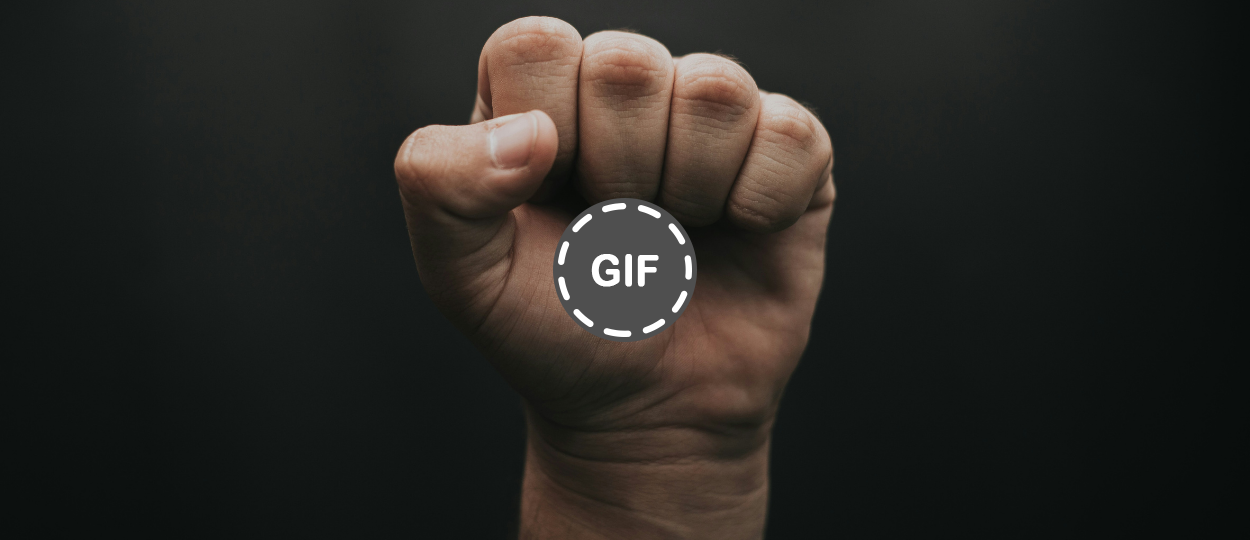
This article originally appeared in High Times Magazine’s 50th Anniversary Print Issue. Order yours here and get it delivered to your door.
Political and societal changes rarely occur organically. They only happen when advocates agitate for them.
For over five decades, NORML and its grassroots supporters have advocated for ending the criminalization, discrimination, and stigmatization of cannabis consumers. We have been deliberate and diligent in our efforts to change the way people talk and think about the marijuana plant and those who consume it.
It’s been – and it remains – an uphill battle. Our movement challenges powerful special interests, like law enforcement. Our work is deeply underfunded. Our advocates are often underrepresented in the mainstream media and in the political arena. But we are winning nonetheless because our message is irrefutable: It makes no sense from a public health perspective, a fiscal perspective, or a moral perspective to arrest, prosecute, and incarcerate adults who choose to responsibly consume a substance that is objectively safer than either alcohol or tobacco.
Also read: Want Clean, Safe Cannabis? Home Grow And Legal Access Are The Answer
At the time of NORML’s founding, only about one in ten Americans believed that cannabis should be legal. Today, 70 percent of Americans support legalization. There are several reasons for this dramatic shift in public opinion. One: the devastating effects of prohibition – including the arrest of over 30 million Americans, disproportionately young and poor people, for violating marijuana possession laws – have been laid bare for all to see. Two: the successes of legalization – including the public health benefits provided by the growing acceptance of medical cannabis and the economic benefits provided by regulated markets – have become impossible to deny. As more jurisdictions have moved to legalize the plant for either therapeutic or recreational purposes, public support for these policies has increased exponentially. In short, the more the public has first-hand experience with legalization, the more they like it.
But just because we have won the hearts and minds of the public doesn’t mean that we have successfully won the legalization battle. In fact, in some respects, it’s made our fight that much harder.
Many supporters now believe, falsely, that nationwide legalization is some sort of fait accompli and therefore, there’s no longer a need for grassroots advocacy. This perception is woefully incorrect. Our political and cultural opponents have not gone away. In many cases, they have regrouped and re-strategized. Knowing that their side has lost the war of ideas, they’ve pivoted to targeting democracy itself – at times attacking and undermining the ballot initiative process, in other instances, overturning marijuana-related election results they disapprove of. In jurisdictions where cannabis is legal, they are chipping away at consumers’ hard-won freedoms by lobbying for arbitrary potency limits (which would re-criminalize certain cannabis products as well as those who produce and consume them), pushing for artificially high sale taxes, and calling on cities and towns to impose bans on marijuana-related businesses.
Also read: Debunking Pot Potency Hysteria: The Truth About ‘Super-Strong’ Weed
Others presume that the corporate cannabis industry can sufficiently and successfully carry our movement to the next level. This is wishful thinking. While some players in the commercial cannabis space do provide limited financial support for grassroots activism, most cannot or do not. More concerningly, the interests of the cannabis industry do not always align with those of consumers. Issues that matter most to the cannabis community, such as securing home cultivation rights, expunging past criminal convictions, ending workplace discrimination, and strengthening parental rights, often get short shrift from industry players – who are far more likely to utilize their resources to lobby for changes in corporate tax codes and industry-specific regulations. In this vacuum, it is critical that activist groups like NORML and other grassroots organizers ensure that consumers’ voices, rather than corporate interests, remain prominent in the ongoing public policy debate. After all, there is no cannabis industry without cannabis consumers.
Finally, it goes without saying that our movement’s objectives are not met until federal cannabis prohibition is repealed. Despite most states having now legalized cannabis, all these policies – and more importantly, those who provide and consume cannabis under these laws – are in violation of federal law and remain in jeopardy of potential federal prosecution. This fact won’t change until the cannabis plant is removed from the federal Controlled Substances Act entirely. Reclassifying cannabis to a lower status, like Schedule III, is not a sufficient long-term solution and, in fact, it will perpetuate the growing divide between state and federal marijuana policies. For states to truly legalize cannabis without the threat of undue federal interference, the government must abandon its long-standing ‘Flat Earth’ policies once and for all. In short, the need for grassroots consumer-driven advocacy is more important than ever. Now is not the time for the cannabis community to rest on the laurels of its past successes or to presume that someone else is going to finish the job. Historically, it’s been the efforts of dedicated advocacy groups like NORML (along with longtime ally High Times) that have represented our culture and demanded that it be recognized and respected. Ultimately, it is this same activist community that must continue to lead this fight, and it is our community that will ultimately liberate the cannabis plant and cannabis consumers from the shackles of prohibition.
This article originally appeared in High Times Magazine’s 50th Anniversary Print Issue. Order yours here and get it delivered to your door.
Paul Armentano is the Deputy Director of the National Organization for the Reform of Marijuana Laws, America’s oldest cannabis consumers’ lobby. To become a member of NORML or to support NORML’s efforts, please consider making a donation here.
Photo by Luis Quintero on Unsplash

Author: mscannabiz.com
MScannaBIZ for all you Mississippi Cannabis News and Information.
You may like
-
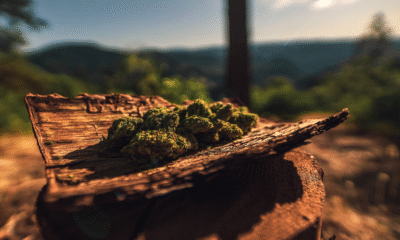

The High Times Guide to THCA: What It Is, How It Works, and Why Everyone’s Talking About It
-
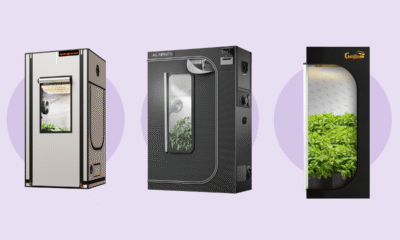

The best grow tents of 2025
-
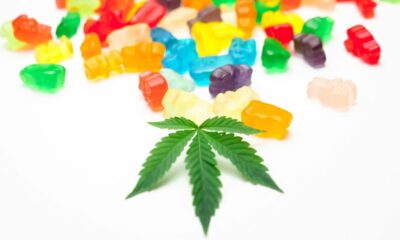

Kansas Lawmakers Discuss Legality Of Intoxicating Hemp THC Products
-


Guess What Is Threading Its Way Back To Being Popular
-


39 Attorneys General Tell Federal Lawmakers to Ban Hemp THC Products
-


No One Is Giving Your Kids Marijuana Edibles in Their Halloween Candy
featured
The High Times Guide to THCA: What It Is, How It Works, and Why Everyone’s Talking About It
Published
23 minutes agoon
October 27, 2025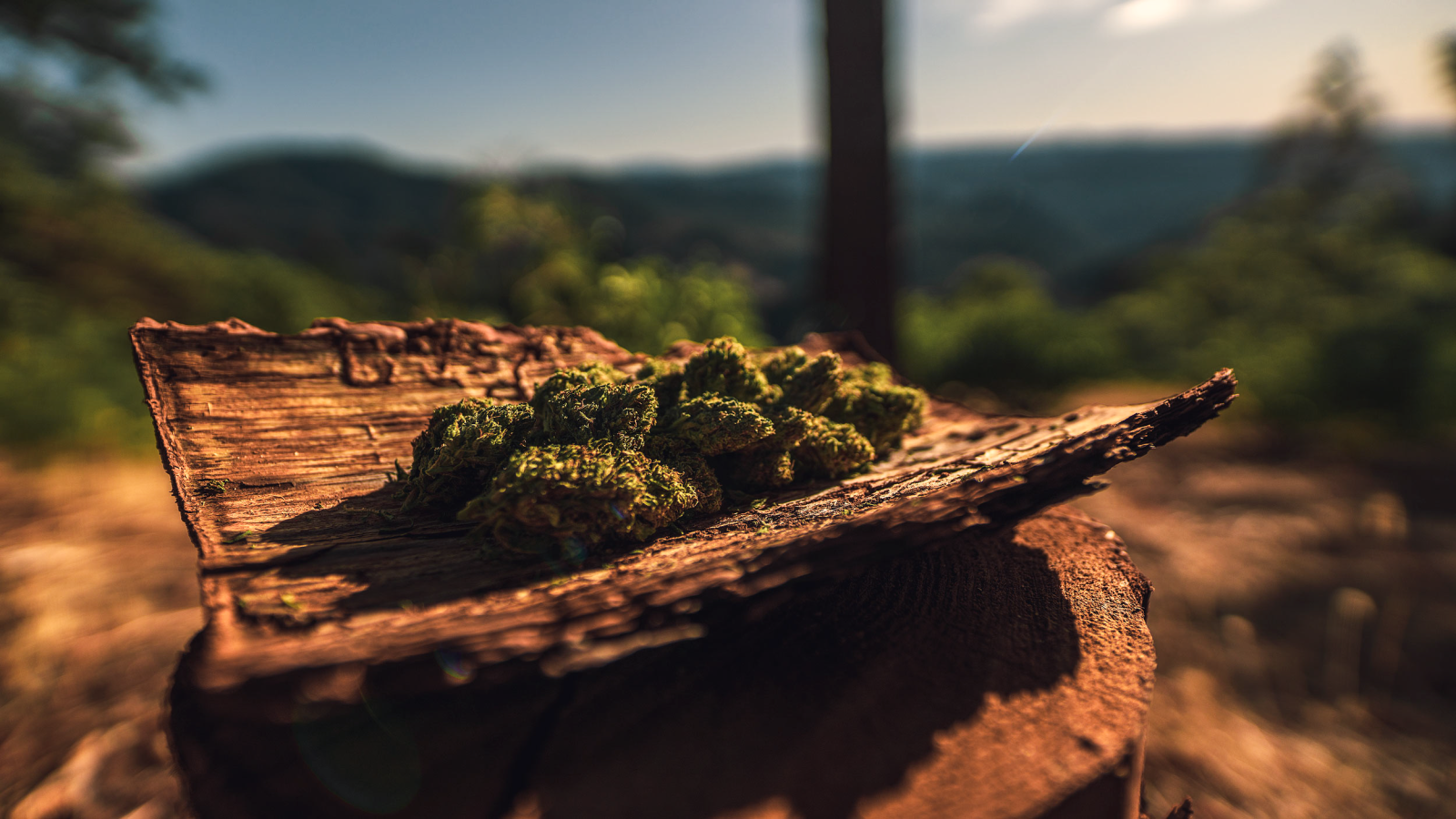
![]()
Depending on who you ask, THCA is either the future of cannabis or the latest hemp loophole. It’s the molecule turning “legal” hemp flower into a legitimate high—the chemistry trick that’s reshaping dispensary menus and blurring the line between hemp and weed.
Once a quiet lab term, THCA is now everywhere: in jars, pre-rolls, vapes, and hashtags. It’s science and street smarts rolled into one—proof that the plant always finds a way.
So what is THCA, really? How does it work? And why is everyone suddenly talking about it? Let’s dig in.
What Is THCA?
THCA stands for tetrahydrocannabinolic acid, the raw, non-psychoactive form of THC found naturally in cannabis plants. In living or freshly harvested flower, most of the THC actually exists as THCA. It’s a compound that won’t get you high until heat enters the equation.
THCA is the plant’s way of storing THC in a dormant state. When you smoke, vape, or bake, the heat triggers decarboxylation, the chemical reaction that removes a carbon group and transforms THCA into the THC molecule we all know and love.
In short:
- Raw cannabis = high in THCA, non-intoxicating
- Heated cannabis = THCA converts to THC, psychoactive
That’s the big secret behind “THCA flower.” It’s cannabis rich in THCA and low in delta-9 THC when tested, making it technically compliant hemp under federal law. But when you spark it, it becomes the real deal.
THCA vs. THC: What’s the Difference?
While they share nearly identical structures, THCA and THC behave very differently. The distinction comes down to that little extra carboxyl group (–COOH) on the THCA molecule.

In its raw state, THCA doesn’t activate the CB1 receptors that create the “high.” But apply heat, and that small structural change flips the switch—turning potential energy into psychoactive power.
The Science of Decarboxylation
Decarboxylation is what transforms THCA into THC. Think of it like roasting coffee beans—same ingredients, new chemistry.
When cannabis is heated—whether in a joint, a vape, or an oven—THCA loses its extra carbon dioxide molecule (CO₂). That small change alters its shape just enough to let it fit perfectly into the brain’s cannabinoid receptors.
General temperature guide:
- Light decarb: ~200°F (93°C) for 45–60 minutes
- Full conversion: ~220°F (104°C) for 30–45 minutes
- Overheating (>250°F) starts degrading THC into CBN, which delivers a heavier, sleepier effect
Most consumers don’t need to worry about this science because their lighter or vape pen does the job in real time. But understanding decarboxylation helps explain why THCA flower is legally hemp, yet functionally weed once it’s smoked.
Is THCA Legal?
The legality of THCA is a tangled web. What’s allowed often depends on when it’s measured, where, and under what definition.
Federal Baseline: The 2018 Farm Bill & “Hemp” Definition
The 2018 Farm Bill legalized hemp (and derivatives) if delta-9 THC (on a dry weight basis) is ≤ 0.3%. That law does not explicitly define limits on THCA. Because THCA is not delta-9 THC itself, some interpreted that high-THCA, low-THC hemp is permissible.
However, regulators frequently require a “total THC” test, meaning delta-9 THC + THCA×0.877 (a conversion factor). Under that regime, high-THCA products may push total THC over 0.3%, making them non-compliant.
In recent moves, federal proposals have surfaced that seek to redefine “hemp” by total combined THC (including THCA) rather than just delta-9 THC. If passed, many THCA-rich products would become illegal even if delta-9 THC is low.
Some legal analysis and DEA commentary suggest THCA might be considered under the analog doctrine (treated like THC) because it readily converts, making its regulatory status vulnerable.
State by State: Patchwork Rules
States vary wildly.
- Some states explicitly treat THCA as controlled or restrict its sale.
- Others allow THCA flower under hemp laws if delta-9 THC remains low at sale time.
- In certain jurisdictions, lawmakers have pushed bans or stricter rules on intoxicating hemp derivatives that include THCA products.
- Legal observers warn that the “loophole era” of THCA may be closing, with states ramping enforcement.
So: THCA may be legal in one state, restricted in another, and borderline in the next. Always check local law—and assume things could change rapidly.

Why THCA Flower Is Everywhere Right Now
THCA flower exploded in popularity because it delivers a familiar experience—the taste, smell, and potency of real cannabis—without technically breaking federal hemp limits.
For consumers in states without recreational dispensaries, it’s a game-changer. For brands, it’s a way to innovate legally. And for the cannabis industry as a whole, it’s a fascinating snapshot of how quickly science, law, and culture adapt to each other.
In other words: THCA flower sits right at the intersection of chemistry and creativity — the same space cannabis has always thrived in.
How to Use THCA
Smoking or Vaping: The most common method, and the one that converts THCA to THC instantly. Expect effects similar to standard cannabis, varying by strain and potency.
Edibles: You can decarboxylate THCA flower in the oven (at around 220°F for 30–40 minutes) before infusing it into butter or oil. Once decarbed, it behaves like regular THC in your edibles.
Raw Consumption: If you eat or juice raw THCA flower without heating, you won’t get high, but you may still experience some of the potential wellness benefits linked to cannabinoids. Some people add it to smoothies or salads for this reason.
Topicals: THCA-infused balms and salves may offer localized support for inflammation or muscle soreness without any psychoactive effects.
Does THCA Get You High?
Here’s the simplest answer:
- Raw THCA: No, it’s non-intoxicating.
Heated THCA: Yes, because it becomes THC.
When you smoke, vape, or cook it, THCA undergoes decarboxylation, converting into the same psychoactive molecule found in traditional cannabis. That’s why THCA flower can feel just like dispensary weed once you light up.
Potential Benefits of THCA
Research on THCA is still in early stages, but preclinical studies and anecdotal reports suggest several areas of promise:
- Anti-inflammatory: THCA may help regulate inflammatory pathways.
- Neuroprotective: Studies have explored its potential role in neurodegenerative diseases.
- Anti-nausea: Early data hints that THCA might reduce nausea or stimulate appetite.
- Antioxidant properties: THCA has been shown to neutralize free radicals.
Many of these effects overlap with THC and CBD, but more research is needed before any definitive medical claims can be made. What’s exciting is that THCA seems to have distinct physiological effects in its raw form, separate from THC’s psychoactivity.
Reading a COA (Certificate of Analysis): What to Look For
Every legitimate THCA product should come with a lab report. Understanding it protects you from buying mislabeled or non-compliant flower.
Here’s how to read it:
- THCA %: The primary active precursor.
- Δ9-THC %: Must be below 0.3% for hemp compliance.
- Total THC: Should be calculated as THC + (THCA × 0.877).
- Lab credentials: Look for ISO-certified labs using HPLC methods.
- Date and batch: Recent and traceable.
- Contaminant screens: Ensure it’s tested for pesticides, heavy metals, and microbes.
Pro tip: High-quality THCA flower usually tests between 20–30% THCA with minimal Δ9. Anything drastically outside that range warrants scrutiny.
How to Store THCA
THCA is sensitive to heat, light, and oxygen. Over time, it can convert into THC or degrade into CBN—both of which change the product’s potency and character.
Storage checklist:
- Keep in airtight, opaque glass jars.
- Store in a cool, dark place — ideally below 70°F (21°C).
- Avoid constant opening/closing or handling.
- For long-term storage, refrigeration (sealed) can help, but allow jars to warm to room temp before reopening.
Proper storage keeps your flower fresh, flavorful, and compliant.

Is THCA Safe?
THCA and THC are both generally well-tolerated, but quality control is everything. Stick with products that:
- Are lab-tested by accredited facilities
- Are free from contaminants
- Clearly list cannabinoid content and source
Because THCA is often sold under hemp law, regulation can be uneven. That’s why buying from trusted, transparent brands—like High Times’ own THCA line—is key.
The High Times Takeaway
The THCA boom represents more than a chemistry lesson—it’s a glimpse into cannabis’s constant evolution. As regulators refine definitions and markets mature, THCA may bridge the gap between hemp and traditional cannabis, giving consumers more choice while pushing science and policy forward.
Whether it remains a legal workaround or becomes fully integrated into the regulated cannabis space, one thing’s certain: THCA has changed the game—and it’s not fading anytime soon.
If you’re curious about the chemistry or just want to experience it yourself, THCA flower offers a way to explore the full spectrum of cannabis, legally, for now.
You can check out High Times’ new line of premium THCA flower, lab-tested, potent, and grown with integrity. Call it hemp, call it weed—we just call it progress.
Frequently Asked Questions
Is THCA legal everywhere in the U.S.?
Not exactly. Federally, it’s legal if derived from hemp with less than 0.3% delta-9 THC, but some states have introduced restrictions. Always check your local regulations.
Will THCA flower get me high?
Not until it’s heated. Once decarbed, it delivers the same psychoactive experience as THC.
Can THCA cause a positive drug test?
Yes. Once consumed with heat, THCA becomes THC—and your body will metabolize it the same way.
Is THCA the same as CBD?
No. CBD doesn’t convert to THC and remains non-intoxicating regardless of heat. THCA can become psychoactive.
What’s a good THCA percentage?
Top-shelf THCA flower usually ranges between 20–30% THCA. Anything above that is considered potent.
Does THCA have medical benefits?
Early research suggests possible anti-inflammatory and neuroprotective effects, but no official medical uses have been confirmed yet.
What’s the difference between THCA and marijuana?
They’re the same plant. The legal distinction depends on delta-9 THC levels — hemp (low THC) vs. marijuana (high THC).
<p>The post The High Times Guide to THCA: What It Is, How It Works, and Why Everyone’s Talking About It first appeared on High Times.</p>

Author: mscannabiz.com
MScannaBIZ for all you Mississippi Cannabis News and Information.
featured
Kansas Lawmakers Discuss Legality Of Intoxicating Hemp THC Products
Published
1 hour agoon
October 27, 2025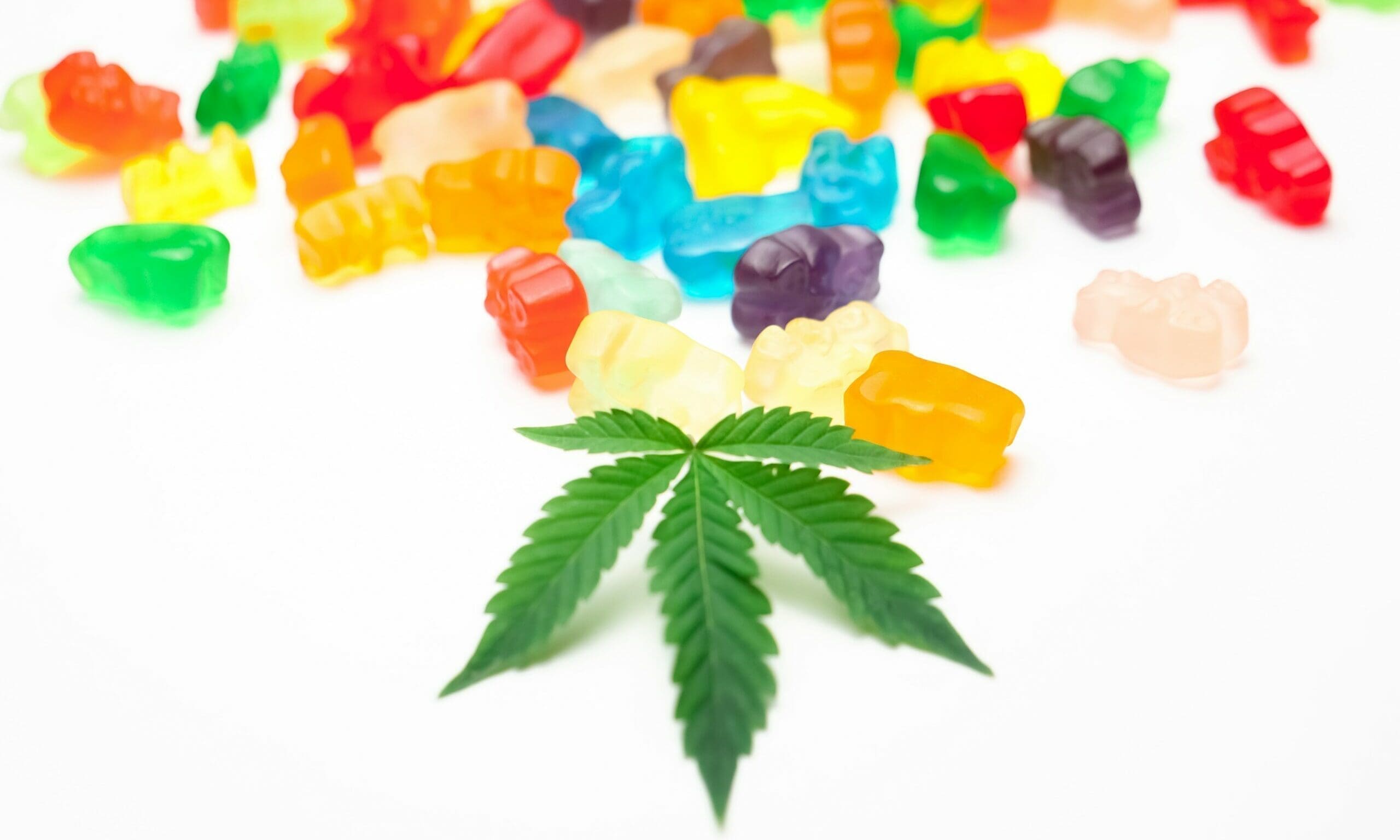
“If it’s intoxicating, it’s damaging.”
By Anna Kaminski, Kansas Reflector
While Kansas remains one of the last states in the nation without legalized medical or recreational marijuana, THC-infused drinks have evaded scrutiny from officials.
The question of the legality of the drinks came up Thursday at a meeting of a joint legislative committee on security.
Robert Stuart, executive officer for the Kansas Bureau of Investigation, explained to lawmakers that while marijuana is illegal in Kansas, THC-infused beverages are considered hemp products and allowed under the 2018 federal Farm Bill, which legalized cannabis plants containing no more than 0.3 percent of a plant’s weight in tetrahydrocannabinol, or THC. Products created using hemp are commonly advertised as Delta 9 items, and they can have a weaker effect than marijuana because of their lower THC content.
Rep. Pat Proctor, a Republican from Leavenworth, asked Stuart: “Should we be outlawing it?”
Yes, Stuart said, and he wagered the KBI’s position would be the same.
“If it’s intoxicating, it’s damaging,” he said.
THC drinks are restricted to adults over the age of 21, same as alcoholic beverages.
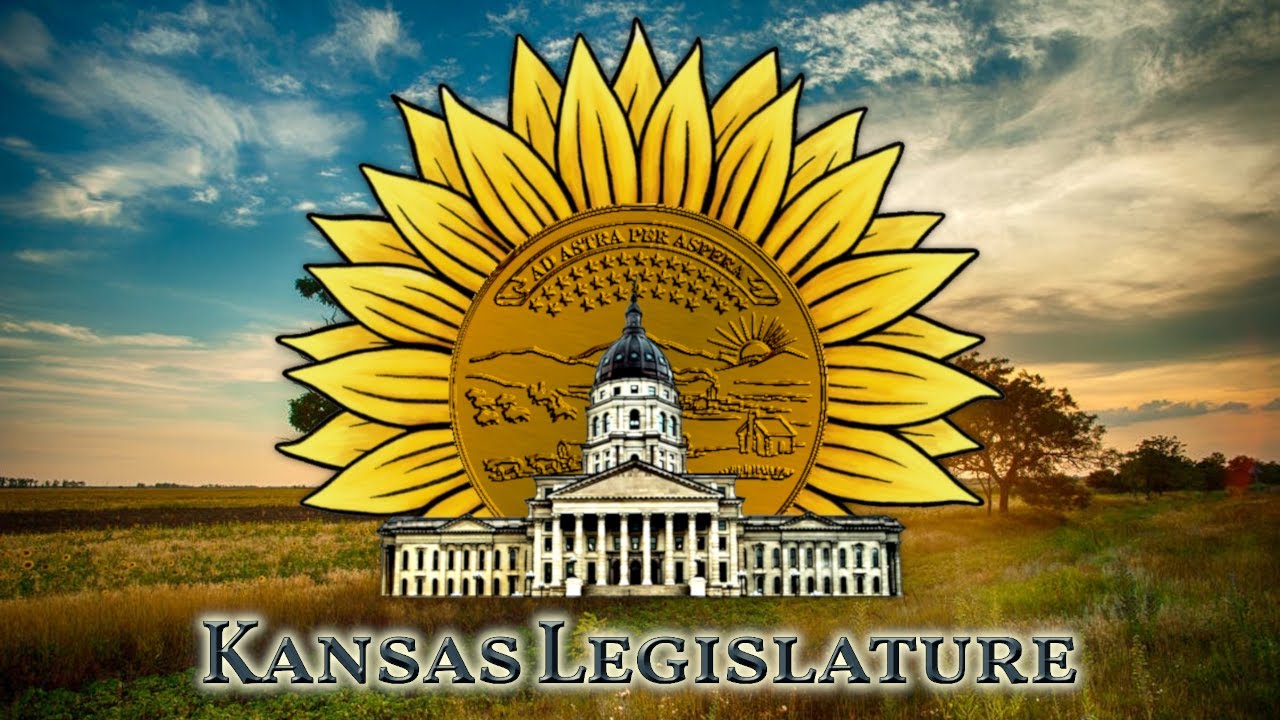
“You hear all sorts of social arguments and all sorts of different ways of thinking about it,” Stuart said, “but it would be much clearer for any of those distributors, any of those dealers, for any member of the public, to say, OK, this is what’s clearly illegal and clearly what’s not.”
Blurred lines make it difficult for retailers to comply with state laws, for consumers to know the products they purchase are safe and for law enforcement to conduct criminal investigations, Stuart said.
Kansas City, Missouri-based brewer Boulevard Brewing Company announced this month a THC-infused version of its signature Quirk seltzer, which will be called “Berry Jane.” It will be available in two dosages. One containing 5 mg THC and another containing 10 mg, differentiated by a darker can. They are expected to be sold in Kansas and Missouri next month.
The KBI celebrated a major crackdown on THC products earlier this month, raiding 10 storefronts in six cities across the state. KBI director Tony Mattivi said the products were harming Kansas children.
The Kansas House passed a bill legalizing medical marijuana in 2021, and a special committee crafted recommendations for the Legislature last year, but Republicans have blocked the legislation from progressing. It could come up during the next session, ahead of the 2026 gubernatorial election.

Author: mscannabiz.com
MScannaBIZ for all you Mississippi Cannabis News and Information.
featured
Guess What Is Threading Its Way Back To Being Popular
Published
2 hours agoon
October 27, 2025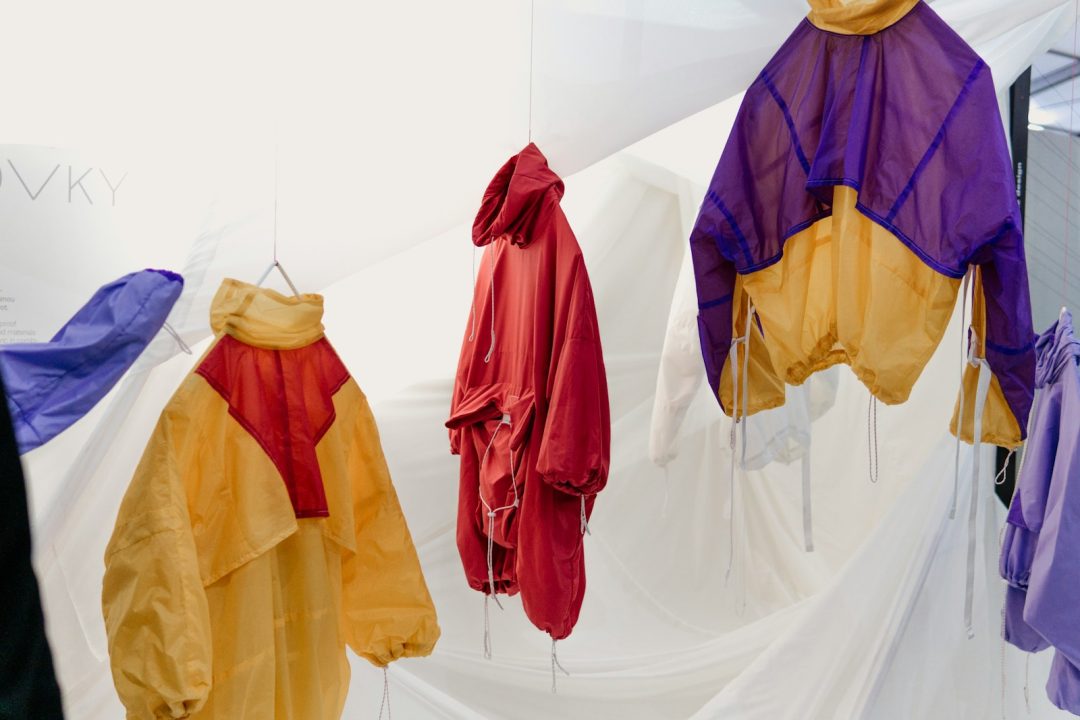
Guess what is threading its way back to being popular — Gen Z’s surprising new obsession is sew cool.
In a generational twist, young Americans are falling in love with their grandparents’ pastimes. From vinyl records spinning on turntables to typewriters clacking again on dorm desks, Generation Z and Millennials are breathing new life into analog culture. Now, they’re taking nostalgia one step further. You will never guess what is threading its way back to being popular now – sewing machines.
Across TikTok, Instagram, and even in big-box aisles at Costco, sewing is emerging as the latest hands-on hobby to stitch its way back into mainstream life.
RELATED: Immersive Events Redefine Millennial Nights
From gardening and journaling to reviving the look of thrifted 1980s windbreakers, Gen Z has turned “old-fashioned” into “on trend.” This generation values individuality, sustainability and creative expression — all things found in vintage-inspired pursuits. Just as vinyl and Polaroid cameras have made a comeback, sewing fits perfectly into the same ethos: it’s tactile, personal, and proudly non-digital.
The resurgence of hands-on creativity isn’t random. It’s a counterbalance to a world that’s often fast, online and disposable. In a sense, young people aren’t just buying less — they’re making more.

Why Sewing Is Trending Again
1. Crafting identity and self-expression
For many, sewing is a declaration of independence from fast fashion. Customizing or making your own clothing offers a sense of empowerment — a creative outlet says, “I made this.” On social media, this translates into content celebrating originality, individuality and style over mass production.
2. Sustainability and slow fashion
Gen Z and Millennials care deeply about sustainability. Sewing gives them a way to reuse, repurpose and repair, rather than toss and replace. Visible mending — repairing clothing in a way shows off the stitches as part of the design — has become a viral movement on TikTok.
3. Screen-break creativity
With most of life lived online, sewing provides an analog escape. It’s hands-on, calming and meditative — a way to literally disconnect from screens. A recent Fortune article noted many young adults are learning to sew “to get off their phones and save money.”
4. The social media effect
TikTok and Instagram have made sewing trendy, not tedious. Hashtags like #sewingtutorial, #upcycledfashion and #thriftflip are filled with videos showing transformations from thrift-store finds to high-fashion looks. Tutorials and time-lapse reels make the craft feel approachable and rewarding — especially when the finished product is instantly shareable.
RELATED: The Connection Between Country Music And Cannabis
When a major retailer starts stocking modern sewing machines, you know something’s changing. Costco now offers sleek, computerized models like the Singer Heavy Duty 8832 and Brother XR3340, complete with LCD screens, hundreds of stitch patterns, and built-in quilting options. These aren’t your grandmother’s machines — they’re tech-forward tools align with the DIY spirit of younger shoppers.
The fact Costco, known for bulk groceries and electronics, now markets sewing machines signals just how mainstream this revival has become. The craft aisle isn’t just for hobbyists anymore — it’s for creators, side-hustlers and trendsetters.
On Instagram and TikTok, sewing creators are building large, loyal followings. Whether it’s a 20-second video of a thrifted denim jacket getting a new lining or a full tutorial on turning curtains into dresses, sewing content fits perfectly into Gen Z’s creative economy. It’s visually satisfying, shareable, and aspirational in a grounded way — making something from nothing.
Younger users are even reframing the stereotype of sewing as something only grandmothers do. Many proudly show off learning from older relatives while adding a modern twist, connecting generations through thread and fabric.

Author: mscannabiz.com
MScannaBIZ for all you Mississippi Cannabis News and Information.

The High Times Guide to THCA: What It Is, How It Works, and Why Everyone’s Talking About It

The best grow tents of 2025

Kansas Lawmakers Discuss Legality Of Intoxicating Hemp THC Products

Guess What Is Threading Its Way Back To Being Popular

39 Attorneys General Tell Federal Lawmakers to Ban Hemp THC Products

Now Is the Time to Embrace, Not Abandon, Cannabis Activism

No One Is Giving Your Kids Marijuana Edibles in Their Halloween Candy

Florida Case On Medical Marijuana Patients’ Gun Rights Is On Hold As Supreme Court Weighs Underlying Issue

CULTA Appoints Cannabis Industry Veteran Joseph Andreae as CEO

The Creature from the Black Leather Lagoon

Cannabis industry case challenging prohibition hits Supreme Court (Newsletter: October 27, 2025)

I Worked a Day as a Budtender in Brooklyn: Here’s What I Learned

Trump’s ‘Stupid’ Drug War Killings Put Military In Untenable Position, Former GOP Attorney General Of Idaho Says (Op-Ed)

Oregon Officials Seek To Dismiss Psilocybin Access Lawsuit From Homebound Patients

South Dakota Medical Marijuana Advocates Alarmed After Lawmakers Give Prohibitionists A Platform

What Levi Strauss Can Teach Us About Craft and Cannabis

Michigan Lawmakers Consider Bills To Change Legal Marijuana Possession Limits And Alter Industry Disciplinary Rules

Bad Stoner Horror: The 10 Worst-Rated 420 Scary Movies

Vee the Traveling Cannabis Writer Unveils First Book in Cannabis Legacy Series – Ganjapreneur

[Video] G Herbo: Snoop Rolled My Blunt and Let Me Hit It, Smoking A Zip a Day, Chicago Munchies (Weird) and What’s Next

Marijuana Companies Ask U.S. Supreme Court To Take Up Case Challenging Constitutionality Of Federal Prohibition

The Odds Of The Feds Making A 2025 Cannabis Change

The Epic High Times Cannabis Cup Journey, From Amsterdam to the Empire State

GOP Senator Pushes To Study—Rather Than Ban—Hemp Products, As State Attorneys General Call For THC Prohibition

Alert: Department of Cannabis Control updates data dashboards with full data for 2023

Connecticut Appoints The US’s First Cannabis Ombudsperson – Yes there is a pun in there and I’m Sure Erin Kirk Is Going To Hear It More Than Once!

5 best CBD creams of 2024 by Leafly

Recreational cannabis on ballot for third time in South Dakota

EU initiative begins bid to open access to psychedelic therapies
New Study Analyzes the Effects of THCV, CBD on Weight Loss

Free delta-9 gummies from Bay Smokes

5 best autoflower seed banks of 2024 by Leafly

Discover New York’s dankest cannabis brands [September 2024]

May 2024 Leafly HighLight: Pink Runtz strain

Press Release: CANNRA Calls for Farm Bill to Clarify Existing State Authority to Regulate Hemp Products

5 best THC drinks of 2024 by Leafly

Local medical cannabis dispensary reacts to MSDH pulling Rapid Analytics License – WLBT

6 best CBD gummies of 2024 by Leafly

Curaleaf Start Process Of Getting Their Claws Into The UK’s National Health System – With Former MP (Resigned Today 30/5/24) As The Front Man

Horn Lake denies cannabis dispensary request to allow sale of drug paraphernalia and Sunday sales | News

5 best delta-9 THC gummies of 2024 by Leafly

The Daily Hit: October 2, 2024

Mississippi city official pleads guilty to selling fake CBD products

Nevada CCB to Accept Applications for Cannabis Establishments in White Pine County – “Only one cultivation and one production license will be awarded in White Pine County”

5 best THCA flower of 2024 by Leafly

Weekly Update: Monday, May 13, 2024 including, New Guide for Renewals & May Board meeting application deadline

6 best hemp pre-rolls of 2024 by Leafly

PRESS RELEASE : Justice Department Submits Proposed Regulation to Reschedule Marijuana
Trending
-

 California Cannabis Updates1 year ago
California Cannabis Updates1 year agoAlert: Department of Cannabis Control updates data dashboards with full data for 2023
-

 Breaking News1 year ago
Breaking News1 year agoConnecticut Appoints The US’s First Cannabis Ombudsperson – Yes there is a pun in there and I’m Sure Erin Kirk Is Going To Hear It More Than Once!
-

 best list1 year ago
best list1 year ago5 best CBD creams of 2024 by Leafly
-

 Business1 year ago
Business1 year agoRecreational cannabis on ballot for third time in South Dakota
-

 Business1 year ago
Business1 year agoEU initiative begins bid to open access to psychedelic therapies
-

 cbd1 year ago
cbd1 year agoNew Study Analyzes the Effects of THCV, CBD on Weight Loss
-

 Bay Smokes1 year ago
Bay Smokes1 year agoFree delta-9 gummies from Bay Smokes
-

 autoflower seeds1 year ago
autoflower seeds1 year ago5 best autoflower seed banks of 2024 by Leafly

